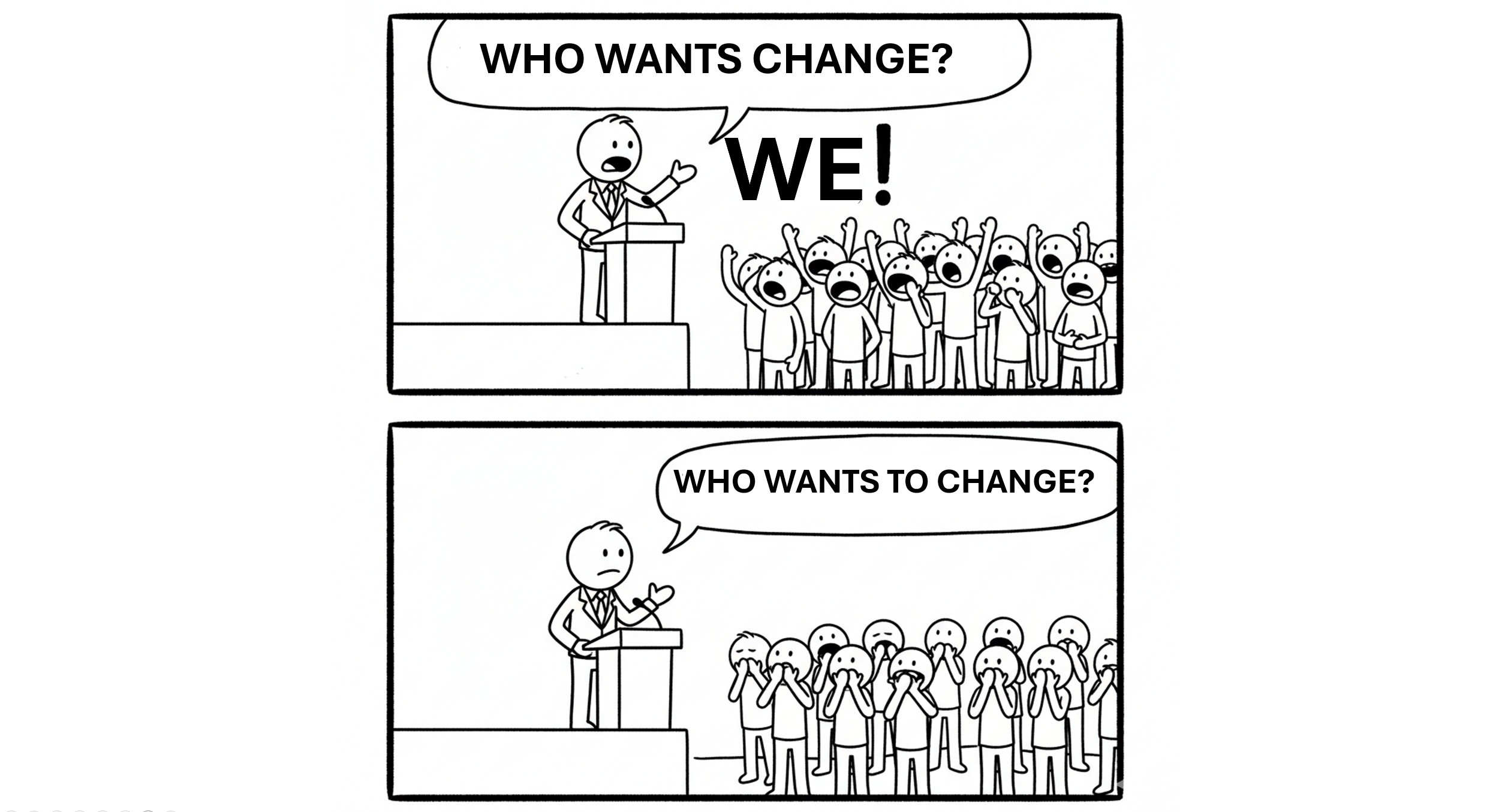By Fredrik Sträng
“Pain is inevitable, suffering is optional”– Haruki Murakami
Let’s start with a direct question then a lesson in acceptance: When you returned from vacation—were you rested, or disappointed?
Many answer the latter. Perhaps you had expectations of perfection: sun, tranquility, that “unavoidable” feeling of bliss. Now you sit here, dwelling on the missed hours of sun and the fact that summer has already passed.
This state, where our inner self complains about the external reality, is universal. In Buddhism, this anxiety of missing out, of never being truly satisfied, is called Dukkha (Sanskrit: dissatisfaction or suffering). Ironically, the better off we become—the more alternatives we have—the greater our sense of dissatisfaction grows.
What is the root of this paradox? And how do we overcome the frustration of constantly getting what we don’t want, and not getting what we do want? The answer lies in understanding the interplay between neuroscience, psychology, and simple acceptance.
- Expectations: The Brain’s “Troubleshooting Mode”
Our brain is not engineered for happiness; it is engineered for survival. This means it constantly compares the present with the desired. This gap is where the pain arises.
- Prediction Error: Neuroscience discusses “Prediction Error.” When reality (what you received) doesn’t match what you predicted (your expectation), dopamine is released not because you feel pleasure, but to signal: “Error! Something went wrong! Learn from this!” In modern life, we often misinterpret this chemical warning signal as dissatisfaction. We get stuck in a constant troubleshooting mode where the brain searches for the flaw instead of enjoying the outcome.
- FOMO vs. JOMO: The modern manifestation of this is FOMO (Fear of Missing Out). Via social media, the brain is fed thousands of “desired realities”—other people’s perfect vacations. This overrides our capacity for JOMO (Joy of Missing Out), the contentment that arises when we intentionally disconnect from external demands and focus on our own, current experience. FOMO is the poison of expectation.
- Unrealistic Demands: The Paradox of Control
Every time we set a goal over which we lack 100% control (e.g., the weather on vacation, the behavior of others, the certainty that a business idea must succeed), we leave the door open for Dukkha.
- Locus of Control: Psychology uses the term Locus of Control. Individuals with a strong external Locus of Control believe that external factors dictate their lives (fate, chance, other people). The higher our external demands, the more frustration we experience, as we try to control the uncontrollable. This struggle against reality drains our mental energy.
- The Mountaineer’s Dilemma: A mountaineer knows he cannot control the storm, but he can control his gear, his planning, and his reaction to the storm. Unrealistic demands are like requiring sunshine on K2; a waste of energy. Our modern “demands” for constant happiness and success are as unrealistic as requiring perfect weather every day. They create mental suffering on top of the inevitable pain (as Murakami points out).
- The Solution: Radical Acceptance (and the Freedom to Act)
You’ve certainly been there. Grandiose plans. But how did it go? Yesterday you had great plans, today you are doing what you always do. Many wish for change, but few are willing to change.
Yet, sometimes the outcome is even better than expected. Last summer, I summited all 377 of Norway’s 2000-meter peaks in a record-breaking 68 days. The original goal was set for one year. The reason I didn’t aim for a record time was the harsh reality: my worry about knee osteoarthritis and my orthopedic surgeon’s verdict that I should not run again.
- Story Perspective (The Positive Surprise): Climbing faster than I could have imagined was a positive surprise. But constantly setting low targets just to always beat yourself leads to a much more dangerous problem. If you, as a business owner or athlete, fail to do your “due diligence” and set ambitious, yet reasonable, goals, you compromise your competitiveness. Aiming for the moon and missing it only to land on the stars is rarely more likely than winning the lottery. Furthermore: if you under-budget, you risk not securing the necessary resources or funding for the following year.
- Scientific Perspective (Goal Setting Theory): Psychologist Edwin Locke showed that the most effective goals are specific and challenging, not easy and vague. Setting a low goal to guarantee a “surprise” provides a short-term kick, but it fails to mobilize the full effort and focus required. True success arises when you set a goal that pushes your inner limits, accept that failure is a part of the process, and then act with full commitment.
- Radical Acceptance as Action: Acceptance is not passivity in the face of low goals. Acceptance means recognizing reality (e.g., knee osteoarthritis), which reduces suffering, and then acting maximally within the parameters reality gives you (the 68-day record). What you didn’t want (“failed” vacation, a professional setback) is not a punishment—it is collected data. The successful entrepreneur or explorer fails more often than anyone else. They have simply learned to see what they didn’t get (Dukkha) as the signal for the next step.
Conclusion:
To overcome the paradox, we must shift focus from external expectations to internal readiness. It is impossible to avoid pain and dissatisfaction (Dukkha), but it is fully possible to abstain from suffering.
You may not get what you wanted, but you get exactly what you need to grow. The value lies not in the fulfillment of the goal, but in your ability to act decisively based on the reality you have just accepted.
Good luck!
——————————
About Fredrik Sträng:
Fredrik, in his leadership role, has summited seven of the world’s fourteen 8,000-meter peaks, set a Guinness World Record, and lectures on leadership, communication, decision-making, and crisis management.
Kind regards,
Fredrik Sträng
Climber – Speaker – Coach







